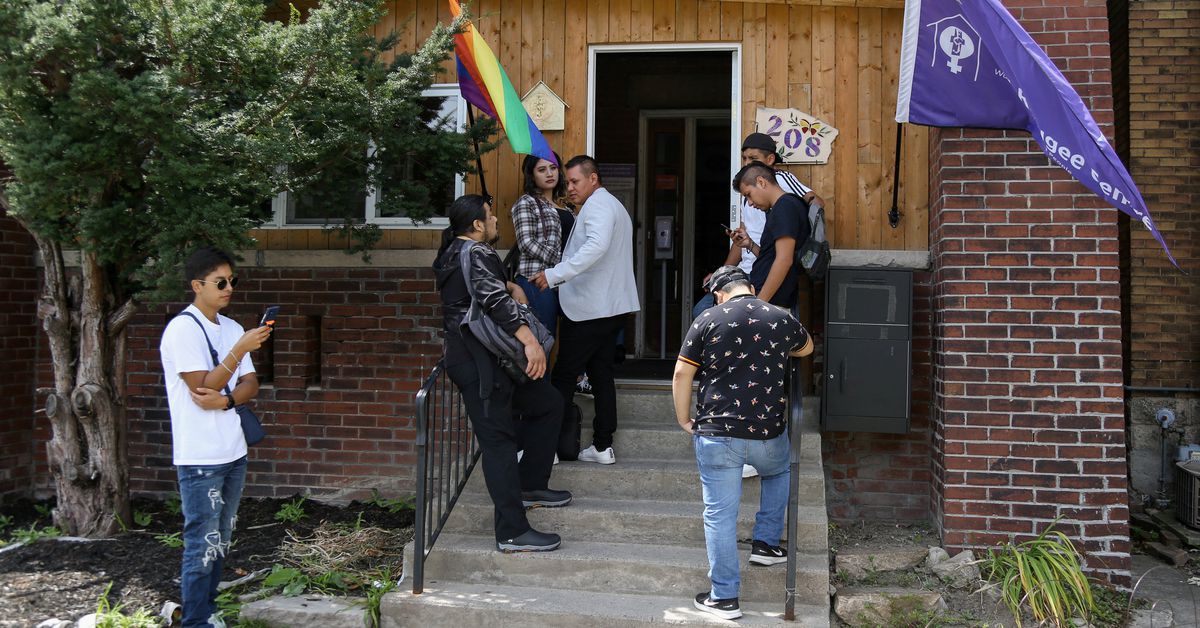Canada has two land borders now. Get with the times!
deleted by creator
Why are we taking asylum seekers who entered the US and didn’t like it when there are legitimate reasons to seek asylum from the US (i.e. for LGBTQ Americans) and the needs of those people aren’t being met?
We need to build more housing, holy fuck.
An asylum seeker that jumps from one developed country to the next is no longer seeking safety, and thus should be subject to the same rules as any other immigrant.
This is the best summary I could come up with:
TORONTO, Sept 2 (Reuters) - A deal Canada struck this year to stem the flow of asylum seekers entering from the U.S. was, at first glance, a quick success: Within days, the number of people caught at unofficial crossings along the border dwindled to a trickle.
“The basic reality is that closing a border doesn’t do anything to solve the need for protection,” said Shauna Labman, an associate professor and acting director of the Human Rights Program at the University of Winnipeg.
Still, last year alone, more than 39,000 asylum seekers entered Canada via unofficial crossings - mostly into Quebec via a dirt path off Roxham Road in New York, prompting the province to complain it could not handle the arrivals.
Some of the higher numbers are being driven by more people filing refugee claims at airports or local immigration department offices - often days, weeks or months after arriving in the country, government data shows.
At least part of the reason for the latest influx is that Canada is among a shrinking group of countries seen as offering safe harbor while pressures of war, climate change and human rights violations force a greater number to flee, some migrant experts say.
With Canada’s land border largely closed off, the asylum system now favors people like Bakhit who can get a visa and plane ticket, refugee lawyer Maureen Silcoff said.
The original article contains 1,171 words, the summary contains 229 words. Saved 80%. I’m a bot and I’m open source!
I love how asylum seeker became an euphemism for illegal immigrant, and leftists act like its a good thing.
Seeking asylum in Canada is legal.
But illegally immigrating is not. Two different acts.
That’s why there are two different words, which are neither synonyms nor euphemisms, this story is about asylum, features stories about individuals seeking asylum and your attempt to confound the two didn’t work.
Except here, they explicitly closed the border and illegally immigrated anyway.
Nope, that’s not it, they’ve explicitly changed their behaviour to stay inside the law. It’s what the article is about, how asylum seekers are adapting their behaviour to fit inside the new changes to the safe third country agreent.
A) Asylum is legal. B) 39,000 people in a year represents a population gain of…0.001%. Horrifying.
Actually… It’s a gain of 0.1%. it’s also 9% of all new immigrants to Canada in a given year. It’s also 4x the limit of the recent H1B holders visa program for skilled immigrants who could not stay in the US.
These numbers are very low, considering how much of the global population live in political shitholes, if not war zones.
Agreed, but don’t talk about it on lemmy, nobody wants to listen.





